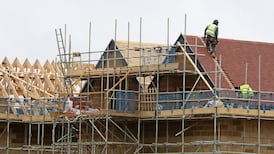The British Prime Minister, Mr Tony Blair, was embroiled in a fresh and potentially damaging row last night after Commons leader Mr Peter Hain suggested a new top tax rate for Britain's highest earners.
The prime minister was forced to deliver a personal slap-down for Mr Hain after he conceded that too many people on middle incomes - including teachers and police officers - were paying too much tax and suggested that "in principle, those on very high incomes would be willing to contribute more".
The Treasury weighed in with its own rebuke, making clear that a Mr Gordon Brown had not been consulted by Mr Hain, and pointedly reminding him that "it is the Chancellor in Budgets that makes decisions about taxation".
However, attempts at damage limitation by numbers 10 and 11 Downing Street came too late to prevent headlines proclaiming a cabinet rift over tax at the end of another difficult week for the government, which has seen Mr Blair forced to make a Commons statement explaining the "botched" cabinet reshuffle in which Mr Hain was promoted.
Mr Hain's comments over-shadowed Mr Blair's presence at the EU summit in Greece and also risked re-opening speculation about the eventual battle to succeed the prime minister, with Mr Hain reinforcing his position to the left of Mr Brown.
The Conservatives claimed Mr Hain's comments - made to BBC Radio 4's Today programme in a preview of a lecture he was delivering in Cardiff last night - revealed Labour's continuing addiction to "tax and spend".
Liberal Democrats, on the other hand, said: "Peter Hain has exposed Gordon Brown's dirty little secret - that, under Labour, ordinary taxpayers are paying more, while the very rich have been protected."
Mr Blair sought to defuse the row, insisting the government's tax policy was not going to change, and that last April's national insurance tax hike was sufficient to fund its commitments to the National Health Service.
Speaking to reporters at the EU summit, Mr Blair said: "I am not writing our next manifesto now but I haven't spent the last 10 years ensuring that the Labour Party is in a position of where we say we are not raising the top rate of tax in order to change that position now."
Labour's election manifesto pledge in 1997, repeated in 2001, was to keep the top rate at 40 per cent.
However, while not talking specifically about the next budget or even the next manifesto, Mr Hain asserted: "I'm a member of the cabinet and I think I'm entitled to ask the question and ask for an honest debate about the future."
While the prime minister's official spokesman implied that Mr Hain might drop the offending passage from the delivered text, Mr Hain said he had told Number 10 he intended to raise the tax issue. It has, in any event, emerged that the original script has already been published to record Mr Hain's lecture.
In it, he said: "We face a situation where the top rate of tax - the 40 per cent band - now catches far too many middle-income employees including teachers and police officers. This presents us with hard choices.
"How can we ensure that hard- working middle-income families and the low-paid get a better deal except by those at the top of the pay scale contributing more?
"Yet at the same time, how do we reward initiative, risk-taking and enterprise, all of which are crucial to generating wealth and economic success?"
While declining to name the top rate he envisaged, Mr Hain continued: "My view is that, in principle, those on very high incomes would be willing to contribute more, provided we don't go back to the old punitive tax rate scene of successive Labour and Tory governments of the past."









